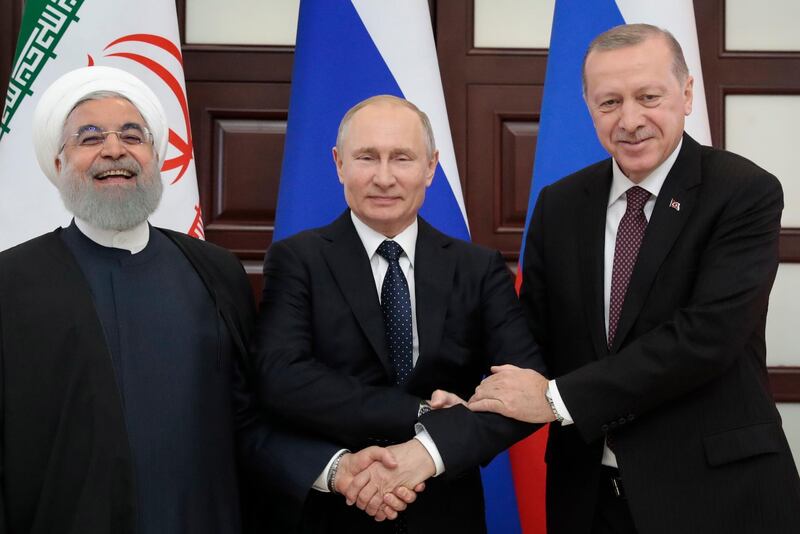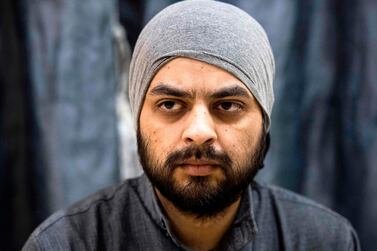Sitting side by side with the leaders of Turkey and Iran on Thursday, Russian President Vladimir Putin promised that the territorial integrity of Syria would be restored and called for his allies to help rid the country of terrorists.
Russia hosted the leaders of Iran and Turkey in the Black Sea city of Sochi on Thursday in order to discuss future joint steps to bring about a long-term settlement in Syria, according to a Kremlin statement ahead of the talks.
As the conflict in Syria grinds to its final stages, Russia, Turkey and Iran have found themselves at odds over how to wrest control of the last pockets of opposition to Syrian President Bashar Al Assad. The question has become increasingly pertinent since US Donald Trump announced in December that he was pulling American forces from Syria.
For Russia, the most pressing issue on agenda was rallying support for an offensive on the northeastern province of Idlib, where an estimated 3 million civilians are under control of an Al Qaeda-linked group, Hayat Tahrir Al Sham.
Although Turkey is worried that an assault would create a massive refugee crisis on its borders, Russian rhetoric in recent weeks has shown impatience to rout the militant group.
"We should not put up with the presence of terrorist groups in Idlib," Mr Putin told Mr Erdogan and Iranian leader Hassan Rouhani on Thursday. "That's why I propose we consider practical concrete steps that Russia, Turkey and Iran can take to completely destroy this hotbed of terrorists."
US President Donald Trump’s announcement in December that he was drawing down some 2,000 American troops from Syria has also tasked the leaders of Russia, Iran and Turkey with filling the vacuum. While Putin noted in Sochi that details of the pullout are still unclear, US forces are expected to leave Syria within weeks.
Turkey says some of the Kurdish militias controlling territory where the US forces are operating are linked to the PKK, a Kurdish group that has fought an insurgency in Turkey since the 1980s.
Mr Erdogan on Thursday said he wants to coordinate with Russia to implement a buffer zone in the north of Syria to counter US-backed Kurdish groups. However Russia, which wants to hand territory back to Mr Assad, said Damascus would decide the fate of Erdogan’s safe zone.
"The question of the presence of a military contingent acting on the authority of a third country on the territory of a sovereign country and especially Syria must be decided directly by Damascus," Reuters quoted Russian foreign ministry spokesperson Maria Zakharova saying about the Turkish safe zone plan on Thursday. "That's our base position."
Observers say that Russia is unlikely to agree to the permanent presence of Turkish troops in Syria.
“At the end of the day, Russia wants Assad to control the borders,” said Yury Barmin, an analyst the Russian International Affairs Council, a think tank established by the Kremlin. “This is a principled position that hasn't moved an inch. If this was negotiable we would have seen a lot more change in Syria by now.”
Since entering the Syrian war in 2015, Russia has played a decisive role in turning the tide of the conflict in favour of Mr Al Assad. Seven years after a series of unarmed protests turned into a civil war, Russia now wants Western governments to allocate funding for the war-torn country’s reconstruction and to facilitate the return of refugees.






